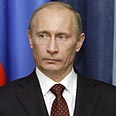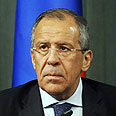

Russian Prime Minister Vladimir Putin offered hints he could support the United States on two key issues – an arms pact and Iran – after a meeting on Friday with US Secretary of State Hillary Clinton.
An aide to Putin said a major nuclear weapons reduction pact between Russia and the United States could be signed in April, and suggested Russia might back new sanctions on Iran despite misgivings, Russian news agencies reported.
Yuri Ushakov's remarks, which followed Putin's first meeting with Clinton since she became the top US diplomat, were inconclusive and did not go beyond what other Russian officials - including President Dmitry Medvedev - have said.
However Putin, who steered his protege into the Kremlin in 2008 but is seen as the dominant partner in Russia's ruling tandem, has clouded prospects for cooperation on Iran and the arms deal with challenging statements in the past.
"Maybe in April," state-run RIA quoted Ushakov, Putin's deputy chief of staff, as saying when asked when Medvedev and President Barack Obama would sign a successor to the 1991 Strategic Arms Reduction Treaty (START 1).
The arms pact, under negotiation since last year, is a crucial part of efforts to get Russian-American ties on track after years of growing animus when Putin and George W. Bush were the presidents.
Mending relations is a key goal for Obama, as he seeks Russian support for his efforts to defeat the Taliban insurgency in Afghanistan, rein in Iran's nuclear ambitions and move towards a world without nuclear weapons.
But negotiators on the arms pact missed an initial target of December 5, when START 1 expired, and have yet to produce a deal.
Putin raised doubts in late December by suggesting Moscow wanted US concessions on missile defense – an issue Washington acknowledges is linked to the offensive arms covered by START but says should be addressed in detail separately.
He has made no significant public comment since, but analysts say his approval is crucial.
"Putin has made clear it won't happen without his consent," said Fyodor Lukyanov, editor of the journal Russia in Global Affairs.
Clinton said on Friday that the sides were "on the brink" of a pact and that only technical issues remained to be agreed.
Ushakov mentioned no specific date but said the pact would likely be signed in Europe rather than in Washington, where Obama is holding a nuclear security summit in mid-April.
His remarks left plenty of room for further delay on the arms treaty – and left the door wide open to disagreement on a fresh sanctions against Iran over its nuclear program.
'Key partner'
Putin told Clinton a new UN Security Council sanctions resolution was "possible" but stressed sanctions "do not always help to resolve such an issue and that sometimes they can have a counterproductive impact," RIA quoted Ushakov as saying.
Putin also issued a mixed assessment of the efforts to improve Russian-US ties, which Clinton symbolically launched in March 2009 by presenting Russian Foreign Minister Sergei Lavrov with a box with a red button marked "reset".
"The United States is a key partner," Putin told Clinton. "And despite some differences on particular issues, we have been able to reach agreement on most important ones."
But he complained about "drastically" decreased trade and US sanctions against some Russian companies, and warned that full cooperation was contingent on stronger US support for Russia's bid to enter the World Trade Organization.
"This question depends on the political will of the Washington administration," Ushakov was quoted as saying.
Clinton's visit was built around a meeting on Friday of the quartet of Middle East peace mediators – Russia, the United States, the United Nations and the European Union. She held talks with Medvedev later Friday.
But Putin overshadowed his successor and exerted influence throughout the visit – even when he was far from Moscow.
On Thursday, while Clinton was entering talks with Lavrov, Putin told a meeting in a southern city that the nuclear reactor Russia is building in Iran would be switched on this summer.
Clinton said that launching the reactor would be "premature" and send the wrong signal as global powers, including Russia, press Iran for assurances it is not seeking nuclear weapons.
Putin also left it unclear whether he would even meet with Clinton until Thursday, when Friday's talks were tacked onto the tail end of her schedule.















